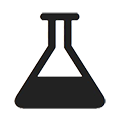
Overview
The biobank is an integral part of the Canadian Health Measures Survey (CHMS), which is a cross-sectional survey designed to produce a nationally representative estimates that accurately portraits the health of Canadians.

Biospecimens
The biobank stores whole blood, plasma, serum, buffy coat, urine, and DNA from consenting Canadians between the ages of 3 to 79 years, on an ongoing basis.
Currently available biospecimens stored for analysis in health studies.

Researchers
The Statistics Canada Biobank is enhanced by the national representability of the cohort and the possibility of merging the biospecimens' data with CHMS content which includes environmental chemical exposure, bone health, cardiovascular health, immunology, endocrinology, nutrition, and more.

Participants
By consenting to storage of their blood, urine and DNA for use in future health studies, participants contribute to advances in health care and research. We ensure scientific excellence while protecting the privacy and confidentiality of our respondents.


Contact Information
For all inquiries e-mail: statcan.chms-biobank-ecms-biobanque.statcan@statcan.gc.ca
Frequently asked questions
-
What is the Biobank?
The purpose of the Biobank is to accelerate future research projects and build health monitoring opportunities on a nationally-representative sample of Canadians. The Biobank receives samples from surveys like Canadian Health Measures Survey (CHMS) or Canadian COVID-19 Antibody and Health Survey (CCAHS) that collect dried blood spot, blood, urine, and saliva samples from consenting participants. These samples are stored in a secure location for future health studies. To obtain approval for the use of these samples, research projects undergo a thorough scientific, ethical, and security review process.
Key advantages to biobanking include:
- helps to avoid the need for researchers to take samples from a new group for each project, which is an expensive and time-consuming process
- accelerated research process as the samples are readily available for analysis
- helps Canadians to benefit from advances in science and medicine.
-
Where are the samples being stored?
All blood, dried blood spot, urine, and saliva samples are stored anonymously at the Public Health Agency of Canada's National Microbiology Laboratory (NML) in Winnipeg. This is a high-security facility, meeting international security standards for laboratories. Samples are stored under the strict confidentiality requirements of Statistics Canada.
-
Under which conditions will researchers have access to my samples?
Samples are available to Canadian researchers who meet the eligibility requirements as described in the Statistics Canada Biobank access policy, which can be found on the Statistics Canada Biobank webpage. For privacy and confidentiality reasons, researchers access the data they produce from Statistics Canada Research Data Centres (RDCs) located at many locations across Canada.
Statistics Canada will give researchers restricted access to the anonymous samples to conduct tests and studies only under the following conditions:
- The researchers must be conducting scientific analyses of national interest.
- The researchers must follow strict security guidelines.
- The research project must receive support through an established scientific review process such as that of the Canadian Institutes of Health Research.
- The project must be approved by a research ethics board.
- The researchers must take an oath to protect data confidentiality.
- The project summary must be posted on Statistics Canada's web page, Canadian Health Measures Survey (CHMS).
-
Can participants withdraw their consent to the storage of their biospecimens in the Biobank?
Yes. During sample collection, participants are asked whether they consent to the storage of their samples. At any time, during or after sample submission, participants can ask to have their samples removed from storage and destroyed by calling 1-888-253-1087, or by email to statcan.chms-ecms.statcan@statcan.gc.ca.
-
What kind of analyses are performed on samples stored at the Biobank?
Samples stored at the Biobank are used in biomedical studies. Biomedical studies include research looking for past exposures to new environmental contaminants, new ways to assess human nutrition, past prevalence of infectious diseases, discovery and validation of new biomarkers to diagnose diseases, and genetic research into DNA genes that modify the health status and susceptibility of Canadians to diseases, infections, or exposures to environmental contaminants.
Information about past Biobank projects and current Biobank projects can be found on the Biobanks projects page.
-
Will my samples be used in genetic testing?
Yes, there is a chance that your sample will used for genetic testing. Genetic testing could include genome wide association studies, or genotyping.
At no point will Statistics Canada release your genome to the public. Statistics Canada, or any other Federal Department, which abides by Canada's Privacy Act, would never allow your DNA to be used in this way.
It is possible to withdraw consent for genetic testing specifically, but keep your samples in the Biobank for other projects. A participant can withdraw consent at anytime by using the contact information found on the Biobank participants.
-
How long will you keep my samples?
Samples are stored in the Biobank indefinitely. Samples are removed when they are used for an approved research project or when a participant requests that their samples be removed and destroyed.
-
Will participants receive their results from the research conducted?
Researchers do not have access to the information that reveals the identity of an individual, such as names and addresses. Therefore, you will not receive any individual results from these projects.
-
Where can I get more information about the Biobank?
Additional information such as the descriptions of approved Biobank studies are posted on the Biobank webpage. You can also access the website by entering 'Statistics Canada Biobank' in your preferred search engine.